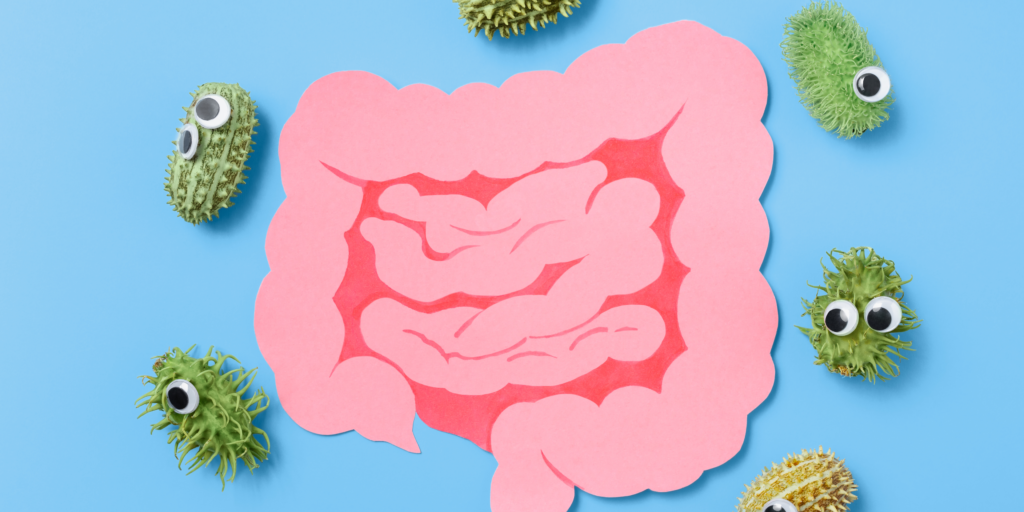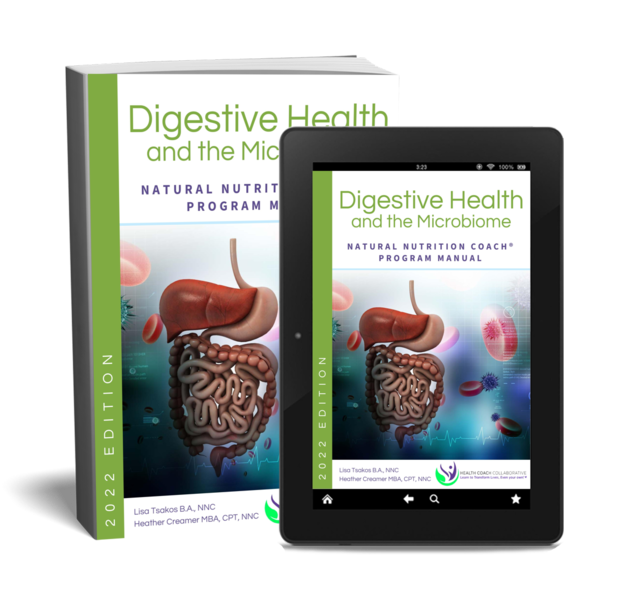How Digestion Can Impact Your Health
August 24, 2023 2024-01-03 13:51How Digestion Can Impact Your Health
The human body is an intricate web of interconnected systems. Among these systems, the digestive system stands out due to the vital role it plays in overall health and because of our direct influence over its function.
What you eat is important, but of even greater importance is that the nutrients and bioactive compounds 1 you consume are well-absorbed. You’ve heard the phrase,
“You are what you eat”—but in fact, you are what you digest (and what you don’t eliminate!).
Many people assume that once food is chewed and swallowed, nutrients are absorbed into the digestive system.
Unfortunately, this is not always the case, a fact underscored by the widespread occurrence of digestive issues. Even consuming a diet rich in the best quality organic foods can’t support your health if your digestion is impaired.
Digestion has more to do with the nutrients we absorb than what we eat.
Digestion is a natural bodily process that should be smooth and uncomplicated, yet millions worldwide experience various digestive ailments. In fact, digestive problems are so prevalent, that many people don’t realize that common symptoms such as gas, bloating, indigestion, and constipation are actually issues of concern!
Poor digestion is indicated by:
- Bloating or gas after meals
- Feeling overfull or lethargic after meals
- Heartburn, acid indigestion, acid reflux
- Constipation (less than one daily bowel movement)
- Irritable bowel syndrome, inflammatory bowel disease, or other intestinal disease

Lifestyle factors such as a poor diet, obesity, and smoking can contribute to the development of these conditions, stress, eating too quickly, food sensitivities, age, certain medications, inadequate sleep, working irregular schedules and many other factors can also contribute to digestive issues.
A malfunctioning digestive system results in poor nutrient absorption and deficiencies—which, ultimately, can lead to chronic illness.
Good digestion is the foundation of our health, and imbalances in the digestive system can be the source of many—if not most—physical and mental illnesses. The impact of the digestive system extends far beyond digestion-related issues. For instance, impaired nutrient absorption may stem from damage to the gut lining, and considering that the gut is home to the largest immune network in the body, compromised immunity often originates there. Furthermore, the gut exerts an important influence on our mood and mental health.
Stomach acid plays a large role in the absorption of nutrients
For example, stomach acid plays a crucial role in iron absorption. In the stomach, gastric acid (hydrochloric acid) helps convert non-heme iron, the form of iron found in plant-based foods, into its more absorbable ferrous (Fe2+) form. When gastric acid production is low—a condition known as hypochlorhydria—the conversion of iron to its absorbable form is compromised. This can contribute to iron deficiency, even if sufficient iron is provided by the diet. Low iron levels can lead to various chronic conditions and health complications, including iron-deficiency anemia, restless legs syndrome, impaired immune function, cognitive impairment, an increased risk of heart arrhythmias, chronic fatigue syndrome, hair loss, and more.
The process of digestion begins in your mouth and ends in your intestines—the lower segment of the digestive system. Problems can arise at any point along this pathway, and disturbances in one organ impact the functioning of other digestive components.

How your body digests food depends on a number of factors, beginning with your nervous system.
The parasympathetic nervous system, often referred to as the “rest and digest” system, assumes a pivotal role in digestion. This branch of the autonomic nervous system triggers a cascade of responses that enhance nutrient absorption and digestive efficiency. At the heart of the parasympathetic nervous system’s influence on digestion lies the vagus nerve—a neural highway that connects the brain to various organs, including the digestive tract. This cranial nerve acts as a direct communicator, transmitting signals that regulate a range of digestive processes.
When activated, the vagus nerve prompts the release of gastric juices in the stomach, including hydrochloric acid and enzymes, that break down food into absorbable components, setting the stage for efficient nutrient extraction. The vagus nerve further enhances nutrient absorption by improving blood flow to the digestive organs, and regulating the rhythmic contractions of the gastrointestinal muscles (a process known as peristalsis) that propel food through the digestive tract.
To stimulate the vagus nerve, techniques such as mindfulness and relaxation exercises, as well as deep breathing before meals can promote a state of calmness that supports good digestion.
Avoid eating under stress or when in a hurry
When you feel anxious, the stomach has difficulty producing the gastric juices that are required to break down food. A few deep breaths before taking your first bite will help you to relax. Salivating at the thought or sight of food is a good indication that the digestive system is ready to receive food.
A key aspect of promoting good digestion involves keeping meals simple with food combinations that do not overstep the body’s enzymatic limitations. Digestive enzymes are proteins that facilitate the breakdown of complex food molecules into smaller, absorbable components. These enzymes are produced in various parts of the digestive tract, including the mouth, stomach, pancreas, and small intestine. Each enzyme has a specific substrate that acts
upon, such as amylase for carbohydrates, lipase for fats, and protease for proteins.
Taking a digestive enzyme supplement before a meal can help break down certain nutrients
Taking a digestive enzyme supplement before a meal can help break down certain nutrients that the body struggles to digest. Digestive enzyme supplements may contain ingredients such as papain, bromelain, amylase (for starch digestion), protease or hydrochloric acid (HCl) for protein digestion, lipase or bile (for fat breakdown), and others. Additionally, digestive enzymes can alleviate bloating, gas, and discomfort associated with poor digestion.
“All disease begins in the gut.” – Hippocrates

The last part of the digestive tract is the gut. Over the past decade, we have come to understand the profound impact of the gut microbiome on many bodily functions. Often referred to as our “second brain,” the gut microbiome is a diverse community of trillions of microorganisms, including bacteria, viruses, and fungi, residing in our gastrointestinal tract.
This ecosystem plays a crucial role in digesting food, synthesizing vitamins, modulating the immune
system, and even influencing mental health. Each person has a unique makeup of microbiome microorganisms that are affected by many factors, including genetics, diet, lifestyle, medications, age, and environment.
An imbalance between beneficial and pathogenic microbes has been associated with gastrointestinal
conditions like dysbiosis and irritable bowel syndrome. Furthermore, such imbalances can contribute to the development of chronic conditions, including autoimmune diseases and
cardiometabolic disorders.
The Importance of the Microbiome
On the other hand, a microbiome that is more diverse and contains a higher percentage of beneficial microbes is associated with healthy immune function, reduced inflammation, and lowered risk of metabolic and mental health disorders. To build and maintain a healthy microbiome, consume a diet rich in fibre, as well as probiotics
prebiotics, postbiotics, and synbiotics:
Probiotics:
Probiotics are live microorganisms that confer health benefits when consumed in adequate amounts. They are commonly found in fermented foods like yogurt, kimchi, sauerkraut, and kefir. Probiotics can restore the balance of beneficial bacteria in the gut, especially after disruptions caused by antibiotics. Research suggests that probiotics can alleviate symptoms of irritable bowel syndrome (IBS), boost the immune system, and improve digestive health.

Prebiotics
Prebiotics are non-digestible fibres that serve as a food source for probiotics, stimulating their growth and activity. Foods rich in prebiotics include garlic, onions, chia, artichokes, leeks, and whole grains. By fostering the growth of beneficial bacteria, prebiotics contribute to a balanced and diverse gut microbiome, thereby enhancing overall digestive health and supporting the immune system.
Postbiotics:
Postbiotics are the metabolic byproducts of probiotic bacteria, such as short-chain fatty acids, enzymes, and peptides. These substances have shown promise in modulating the immune system, reducing inflammation, and promoting gut health. Postbiotics can be found in various fermented foods, including kefir, yogurt, fermented vegetables (sauerkraut, pickles, kimchi), lentils and chickpeas, sourdough bread, and fermented soy products, among others.
Synbiotics:
Synbiotics are a combination of probiotics and prebiotics, designed to enhance the growth and activity of beneficial microorganisms in the gut. While synbiotics are available in supplement form, some food combinations naturally provide a synbiotic effect. Examples of foods that can be considered symbiotic include:
- Yogurt with added fibre
- Sauerkraut with garlic – Garlic contains prebiotic compounds, while the probiotic bacteria in sauerkraut can benefit from these compounds
- Pickled vegetables with whole grains – Pair pickles or kimchi with whole grains like brown rice or quinoa. The fibre in whole grains acts as a prebiotic for gut bacteria, enhancing the benefits of the probiotics in the pickled vegetables
- Fermented dairy with fruits – Combining fermented dairy products like yogurt or kefir with fruits that contain natural sugars can create a synbiotic effect. The sugars from the fruits act as prebiotics for the probiotic bacteria.
Exercise caution with antibiotic use, including those found in food sources, reserving them for
essential situations. Antibiotics can kill beneficial bacteria and decrease the diversity of microbial species, disrupting the microbiome’s delicate balance. Prioritizing digestive health is beneficial for your physical and mental well-being. Take steps to start improving your digestion starting with your next meal!
Learn about Digestive Health & the Microbiome
HCC is proud to offer the life-changing Course Digestive Health and the Microbiome. Develop a foundational understanding of the process of digestion, the symptoms of common digestive diseases, and dietary interventions and protocols that may help alleviate symptoms.
The many roles and functions of the microbiome are explained in detail to encourage an appreciation for its far-reaching influence on the human body. The protocols recommended in this course are based on the Health Coach Collaborative’s Four Pillars approach for common digestive disorders, including acid reflux, constipation, leaky gut syndrome, dysbiosis and candida, SIBO, inflammatory bowel disease, and irritable bowel syndrome. The practical guide includes done-for-you meal plans and an at-a-glance reference chart itemizing the do’s and don’ts for each condition. It’s an invaluable resource when working with clients—and even for your own health!
Yours in Health,
The Health Coach Collaborative Team!



